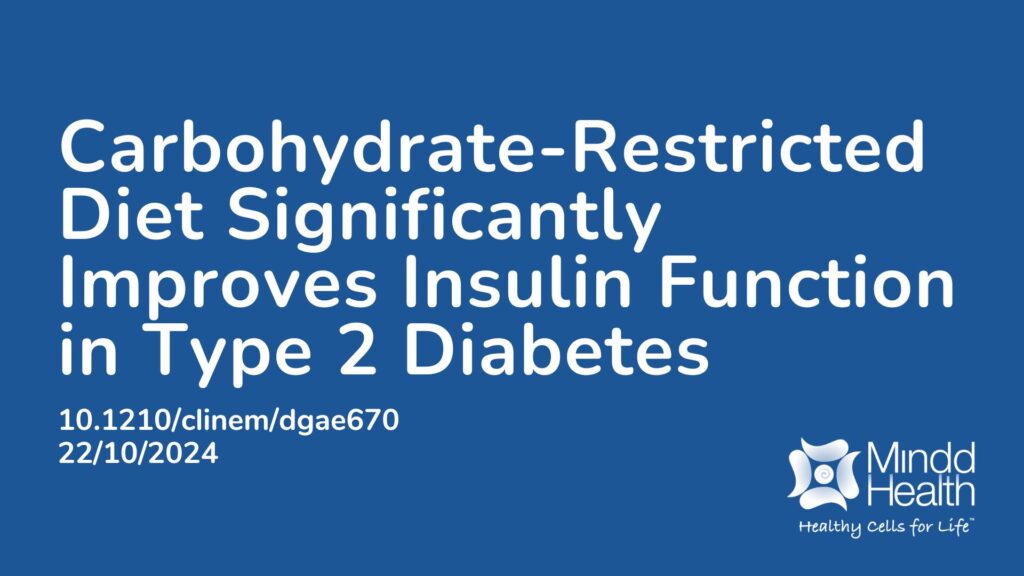Summary:
In people with type 2 diabetes (T2D), the ability of their β-cells to respond to glucose is often impaired. β-cells are the cells that produce insulin, and a breakdown in their function is possibly due to high carbohydrate intake. This study aimed to assess whether a carbohydrate-restricted diet (9% of calories from carbohydrates and 65% from fat) could improve β-cell function compared with a higher carbohydrate diet. The higher carbohydrate diet contained 55% of calories from carbohydrates and 20% from fat. The study involved 57 adults with T2D who were not insulin-dependent. The participants were advised to stop taking their diabetes medications 1 to 2 weeks before the study began, allowing the new diet to be the only control on insulin levels. The researchers measured the β-cell response to glucose using a specialized test at the start of the study and after 12 weeks of controlled diets, as well as an oral glucose tolerance test (OGTT) before and after the intervention. The results showed that after 12 weeks, the carbohydrate-restricted diet significantly improved β-cell response to glucose. Specifically, participants showed an insulin response that was twice as high with the lower carbohydrate diet, meaning insulin was working more efficiently. The OGTT also showed that the carbohydrate-restricted diet improved how well the body processed glucose by 32%. The authors concluded that a carbohydrate-restricted diet can significantly improve β-cell function in people with type 2 diabetes.
Abstract:
Context: β-Cell response to glucose is compromised in individuals with type 2 diabetes (T2D), possibly due in part to excessive carbohydrate consumption. Objective: This study was conducted to determine if a eucaloric carbohydrate-restricted (CR) diet (∼9% energy from carbohydrate, 65% energy from fat), compared to a eucaloric higher carbohydrate (HC) diet (∼55% energy from carbohydrate, 20% energy from fat), would improve β-cell response to glucose in participants with T2D. Methods: Participants were 57 African American and European American adults with T2D not using insulin. Medications were discontinued 1 to 2 weeks prior to baseline testing. A hyperglycemic clamp was used to assess the acute (first-phase) and maximal (arginine-stimulated) C-peptide response to glucose at baseline and after 12 weeks of controlled diet therapy (all food provided). An oral glucose tolerance test (OGTT) was used to assess the disposition index (DI). Results: At 12 weeks, a statistically significant effect of diet was observed on acute C-peptide response (2-fold greater with the CR diet; P < .01). For maximal C-peptide, a significant effect of diet was observed (22% greater with the CR diet; P < .05), as was a significant diet-by-race interaction (P < .05), indicating that the diet effect was specific to European Americans (48% greater with the CR diet; P < .01). OGTT results showed a significant effect of diet on DI at 12 weeks (32% greater with the CR diet; P < .05). Conclusion: These results suggest that a eucaloric CR diet has beneficial effects on β-cell function in patients with mild T2D.
Article Publication Date: 22/10/2024
DOI: 10.1210/clinem/dgae670



